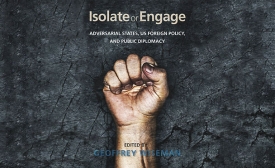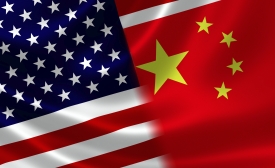china
When American political scientist Joseph Nye says China’s soft power is limited, he isn’t kidding. China ranked dead last on a 30-country index of soft power released last week by Portland Communications. The index assessed countries on six measures of reputation and influence.
The 36-member team, which included members of the Phil-Chinese community, paid a courtesy call on Philippine Ambassador to China Erlinda Basillo, who referred to the dual meet as “ping pong diplomacy”, which is what both sides need in the face of tensions gripping the Philippines and China.
The arena for this convergence of two words- science and diplomacy- was displayed at a Center for Strategic and International Studies (CSIS) Washington symposium, where marine science, and the emergence of China’s ‘blue economy’ framed a new narrative in understanding the environmental stakes in the region’s escalating conflict.
Japan’s Asahi Shimbun reported back in June that a planned Yang-Yachi meeting in mid-July would focus on two topics: Abe’s planned statement on the 70th anniversary of the end of World War II and a possible summit between the Chinese and Japanese leaders. Abe and Xi have meet several times since both assumed office, but always on the sidelines of larger multilateral groupings. A purely bilateral meeting between Asia’s two largest economies would be a major step forward.

Professors Wiseman, English and Nguyen led a timely and engaging discussion about their book, "Isolate or Engage: Adversarial States, U.S. Foreign Policy, and Public Diplomacy."
Touring Swan Lake in China is not the kind of cultural diplomacy that will help Australia gain a foothold in Asia.[...] The arts sector must engage with Asia and other parts of the world on cultural terms.
The U.S.-China relationship is simply too consequential to be allowed to falter and fail. The cost of mishandling it would be enormous, if not disastrous, for all. Holding the relationship together requires political and policy imagination, as well as active, sustained engagement through public diplomacy.

Jay Wang on why public diplomacy between the two superpowers is more crucial than ever.







